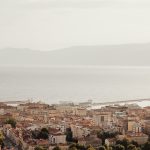According to the official statement sent by the Office of the President on February 4, 2016, in the next four years, Croatia will donate one million euros to Syria. Croatian President Kolinda Grabar-Kitarović called on the international community to act urgently in order to stop the suffering of millions of Syrians. Croatian financial assistance will be used to protect and educate children, women and religious minorities and to fight against sexual violence, said Grabar-Kitarović at the international donors’ conference held yesterday in London.
“Every child has the right to education… Education is the most powerful weapon against extremism”, said the President at the meeting of representatives of 70 countries and international organizations. She believes that too much time has been lost and that the international community must act immediately to stop the suffering of civilians in the war between President Bashar al-Assad and various rebel groups which Damascus considers terrorists. “We need to step up efforts, to be more decisive, better coordinated and more effective. We are losing future generations of Syrians while the scale of human suffering is unacceptable”, said Grabar-Kitarović.
She believes that the approach to resolving the crisis must combine political, military, educational, cultural and religious aspects, and the foundation should be the UN resolution adopted in 2015 which calls for an immediate ceasefire in order to deliver humanitarian aid. “I hope that the political process, based on the UN resolution, will lead to the end of the crisis and tragic conflict”, said Grabar-Kitarović.
Great Britain and co-organizers of the conference – Germany, Norway, Kuwait and the UN – hope that participants will pledge nine billion dollars for Syria and additional 4.4 billion dollars for refugees in neighbouring countries.
On the sidelines of the conference in London, President Grabar-Kitarović met with a number of political leaders. The press release published by her Office says that she met with President of Azerbaijan Ilham Aliyev, with whom she discussed the possibilities for deepening economic cooperation, especially in the energy and economy sectors. The President also met Jordanian King Abdullah II, with whom she discussed bilateral issues and security situation in the region.
Bilateral issues were also discussed with the President of Switzerland Johann Schneider-Ammann, with particular emphasis on the inclusion of Croatia in the agreement on the free movement of people between the EU and Switzerland.
The President also met briefly with European Council President Donald Tusk, British Prime Minister David Cameron and German Chancellor Angela Merkel, with whom she discussed the current issues in the European Union. She also talked with Macedonian President Gjorge Ivanov and Turkish Prime Minister Ahmet Davutoglu.







